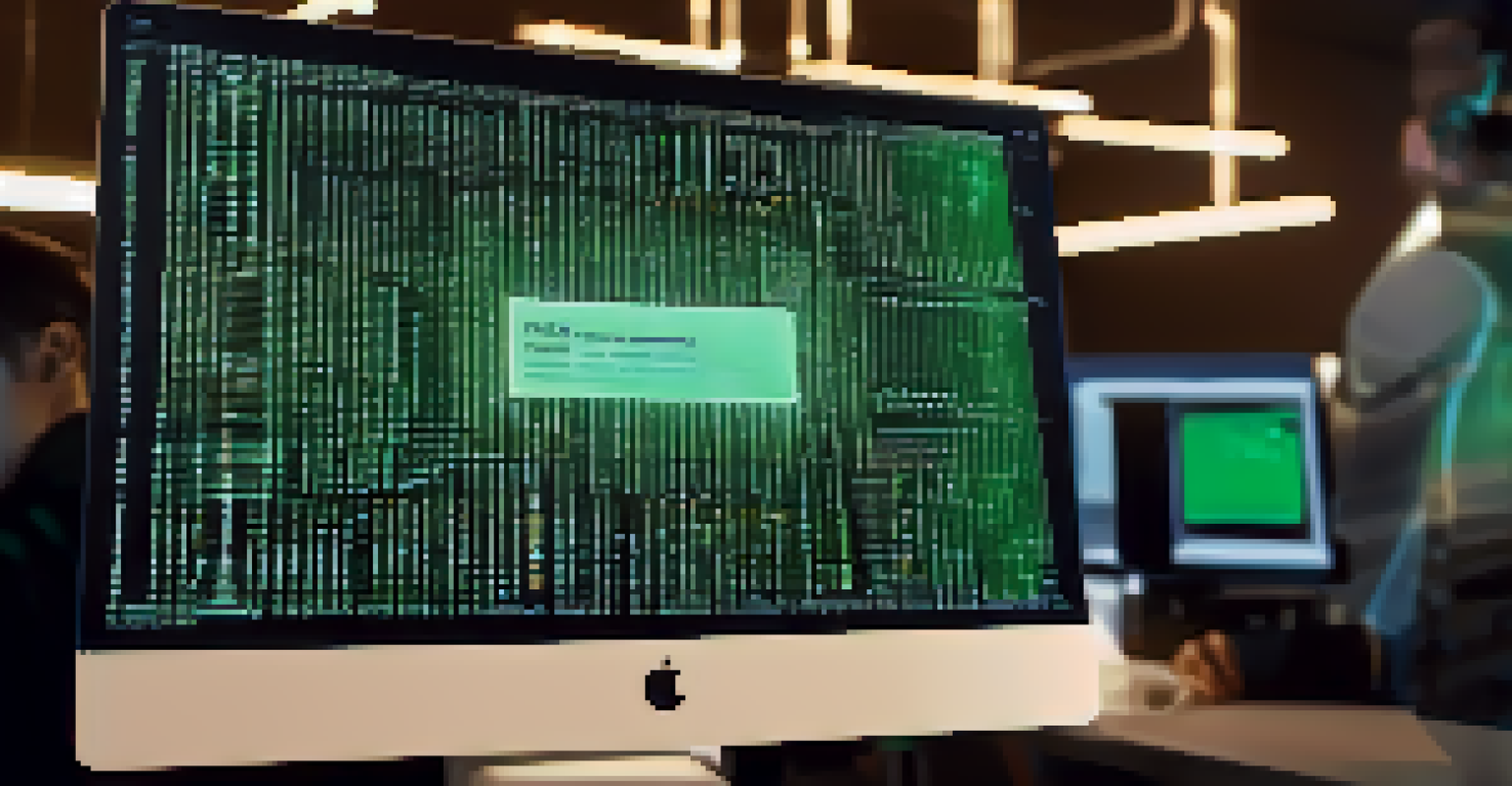Legal Risks in Ethereum Decentralized Finance (DeFi) Projects

Introduction to Legal Risks in Ethereum DeFi Projects
Decentralized Finance, or DeFi, has taken the blockchain world by storm, offering innovative financial services without traditional intermediaries. However, with this innovation comes a range of legal risks that participants must be aware of. The complexity of regulatory frameworks can leave both developers and users vulnerable to legal repercussions.
Decentralized finance is a powerful tool for financial inclusion, but it must be approached with caution and a solid understanding of the legal landscape.
As DeFi projects often operate in a gray area of the law, understanding the potential legal risks is crucial. This includes everything from regulatory compliance failures to issues related to consumer protection. By grasping these risks, stakeholders can better navigate the DeFi landscape and protect themselves.
In this article, we will explore various legal risks associated with Ethereum DeFi projects, providing insights into how these challenges can impact users and developers alike. Through this understanding, we aim to empower participants in the DeFi space to make informed decisions.
Regulatory Compliance Challenges in DeFi
One of the most significant legal risks in DeFi is the challenge of regulatory compliance. Different jurisdictions have different rules governing cryptocurrencies and financial services, which can lead to confusion for DeFi developers. For instance, a project that functions legally in one country might be deemed illegal in another, creating a minefield of compliance issues.

Additionally, regulatory authorities are continuously updating their guidelines, which can leave DeFi projects scrambling to keep up. This lack of clarity can result in unintentional violations that expose projects to fines or even shutdowns. Developers must stay informed about the evolving landscape to mitigate these risks appropriately.
Regulatory Compliance is Challenging
DeFi projects face significant legal risks due to varying regulations across jurisdictions, making compliance a complex endeavor.
To successfully navigate these challenges, many DeFi projects are turning to legal experts for guidance. Engaging with legal professionals can help ensure that projects are structured in compliance with applicable laws, which ultimately fosters a safer environment for users.
Consumer Protection Concerns in DeFi Ecosystems
Consumer protection is a central concern in the world of finance, and DeFi is no exception. Users often engage with platforms without fully understanding the risks involved, which can lead to significant financial losses. Unlike traditional finance, where consumer protections are more robust, the DeFi space lacks standardized safety measures.
The future of finance is decentralized, but without proper regulation and consumer protection, we risk losing the trust of users.
For instance, smart contracts, which automate transactions, can contain vulnerabilities that hackers exploit. If a user invests in a project without adequate protection, they could lose their funds due to unforeseen exploits. This highlights the importance of transparency and user education in the DeFi space.
As a response, some DeFi projects are implementing measures to enhance consumer protection, such as audits and insurance mechanisms. These initiatives aim to build trust with users, reassuring them that their assets are safeguarded against potential risks.
Intellectual Property Issues in DeFi Projects
Intellectual property (IP) rights present another layer of legal risk in DeFi projects. Many projects rely on open-source code, which can lead to disputes over ownership and usage rights. Developers must be cautious, as using someone else's code without permission can result in legal action.
Furthermore, the rapid pace of innovation in DeFi can blur the lines of IP protection. As new protocols and tools are developed, determining whether they infringe on existing patents or copyrights becomes increasingly complex. This uncertainty can discourage innovation and collaboration among developers.
Consumer Protection is Lacking
Users in the DeFi space often lack the robust consumer protections found in traditional finance, exposing them to potential financial losses.
To mitigate IP-related risks, DeFi projects should prioritize clear licensing agreements and document their development processes. By doing so, they can establish a more secure framework for their innovations, ensuring that their rights are protected while fostering a collaborative environment.
Tax Implications for DeFi Users and Developers
Taxation is a critical consideration for anyone involved in DeFi, whether as a user, developer, or investor. The decentralized nature of these platforms complicates tax reporting, as many transactions occur without the oversight of traditional financial institutions. This can lead to unexpected tax liabilities and potential penalties for non-compliance.
For example, in many jurisdictions, cryptocurrency transactions are considered taxable events, meaning that trades or exchanges may require users to report gains or losses. However, the lack of clear guidelines surrounding DeFi transactions makes it challenging for individuals to fulfill their tax obligations accurately.
To navigate these complexities, users should keep detailed records of their transactions and seek advice from tax professionals familiar with cryptocurrency regulations. This proactive approach can help prevent legal complications and ensure compliance with tax laws.
Fraud and Security Risks in DeFi Platforms
Fraud and security risks are prevalent in the DeFi landscape, posing significant legal concerns. The anonymity that blockchain offers can attract malicious actors looking to exploit unsuspecting users. From phishing attacks to rug pulls, the potential for fraud is a pressing issue that the DeFi community must address.
Moreover, security vulnerabilities in smart contracts can be exploited, resulting in substantial financial losses for users. The decentralized nature of DeFi means that there is often no recourse for victims, leaving them vulnerable and without support. This raises questions about the accountability of developers and the legal implications of such incidents.
Tax Reporting Complicates DeFi
The decentralized nature of DeFi platforms complicates tax reporting, leading to potential liabilities for users and developers.
To combat these risks, many projects are adopting best practices such as thorough audits and community engagement. By fostering a culture of transparency and security, DeFi platforms can build trust with their users, ultimately creating a safer ecosystem.
Future Legal Considerations for DeFi Projects
As DeFi continues to evolve, so too will the legal landscape surrounding it. Regulatory bodies are increasingly recognizing the need to establish clear guidelines for cryptocurrency and DeFi projects. This shift could lead to a more structured environment that protects both developers and users while promoting innovation.
However, the rapid pace of technological advancement in DeFi may outstrip regulatory frameworks, leading to ongoing uncertainty. As new technologies emerge, regulators will need to adapt their approaches to ensure that they adequately address the unique challenges posed by decentralized systems.

Looking ahead, it is essential for DeFi projects to remain agile and responsive to legal changes. By fostering open dialogue with regulators and actively participating in discussions surrounding compliance, the DeFi community can help shape a regulatory framework that balances innovation with legal safety.